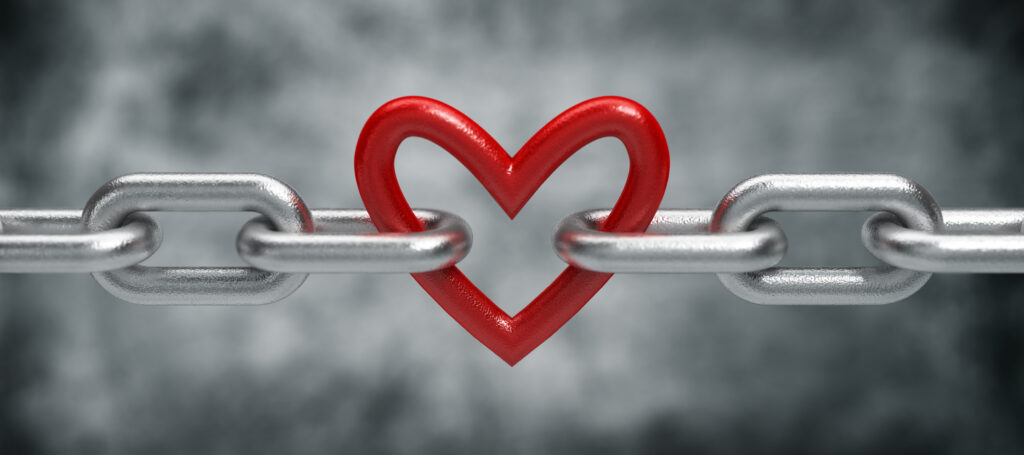Whether we’re an ace or a novice at setting them, one thing I think we can all agree on is that boundaries are a bit of a thing now. I’m simply thrilled by the number of people around me who are setting boundaries that make them feel more seen and respected in their relationships. I believe that when we set boundaries effectively (keyword) we can take relationships to the next level.
But let’s be honest. It can hurt when we’re getting to know someone or we think we know someone, and we find ourselves on the receiving end of what I like to think of as a chain-link fence boundary. When someone says, I don’t like the way you talked to me, I don’t want to do that activity you enjoy, or even, I don’t want to go on a second date with you, it can feel a little harsh. Maybe their therapist was on board with their newfound authenticity, but you were the one on the receiving end, and I get how hurtful that can be. It’s very human to feel rejected or abandoned by someone else’s boundary, so please don’t be hard on yourself if you feel this way.
So, with that out of the way, what are we to make of other people’s boundaries? Are they hurting or helping? To answer that, let’s take a look at what boundaries are, and some ways that we can set boundaries in ways that are helpful and minimally hurtful.
One way of thinking about boundaries is as the lines that we draw around what’s ok for us and what isn’t. Boundaries are not directives that other people must follow. For example, our boundary is not what someone else should do for us but rather, what we will allow for ourselves and what we won’t. Also, we must remember that we do not have control over how people will receive us. People may not like our boundaries, and we must recognize that a risk of setting a boundary is that the dynamic of the relationship may change as a consequence. Boundaries are about standing up for what we need and will allow, and are about taking responsibility for our own experience. Others won’t always get it, and we may have more impasses and lose some relationships when we start to set them. We may have to set them a few times before they stick, simply because the other person doesn’t fully understand. This is normal and a part of the process a lot of people go through when they’re committing to having more healthy relationships.
For boundary setters:
Please don’t stop setting boundaries when you need to let someone know that something has the potential to make you uncomfortable. However, I would suggest that you consider the other person when you communicate, and to some degree, that your boundaries remain flexible. Try to imagine your boundaries are rubber bands, not chainlink fences. What I mean by this is, if you’d like to put some limits on someone important to you or with whom you’d like to build more closeness, try to imagine how your boundary might be negotiable or whether there is any room to bend for their needs.
Let’s say for example that your friend wants to go to a new action movie, and the thought of shelling out for that feels like a bunch of senseless violence and waste of your hard-earned money.
It’s ok to feel that way, and it’s ok to say no! However, I would suggest to you that before you reject the invitation, consider what the person making the invitation is seeking. Do they just want a buddy to this particular movie? Or do they want to spend time and connect with you? See if there’s somewhere else you can meet in the middle so that you can have your no, but so that your pal stays in connection with you. Maybe you want to say no to the movie but suggest an alternative activity you’ll both enjoy. Or maybe they go see this particular movie with someone who likes it more, but you’ll catch up another time. The key point in a case like this is to ensure that you’re staying in connection while honouring your preferences and the other person’s as much as possible. You’re looking for a win-win here.
There are going to be times when your boundary is a bit firmer, and you’re going to be less concerned with the other person’s reaction. I encourage you to be very firm around your sexual boundaries and those around physical contact. Your priority in this area is should be to protect yourself. The importance of this should soar above the other person’s feelings, which should not have much or any mediating impact on your boundary. If someone feels rejected that you do not want physical closeness, I recommend that you allow them to feel rejected and hold firm on to your boundary.
However, with lower stakes types of boundaries, let’s look at some ways we can communicate in a way that builds authenticity but doesn’t shut the other person out. Let’s say for example that the last couple of times your friends have come by on a weeknight, you’ve been tired at work the next day, and you’re starting to feel resentful that they tend to leave later than you’d like. Here are some ways of communicating your no without making it personal:
- “I’m looking forward to seeing you later! I have work in the morning so I hope you don’t mind if we turn in by 9!”
- “I realized last time we hung out I was having such a good time I stayed up later than I meant to. I learned my lesson! Next time I will need to call it by 9.”
- “As much as I would rather stay up late with you, I know I need to be on point at work tomorrow. I need to go to bed soon”.
Tinker with the language until it seems like something you’d actually say. Some tips: keep the focus on what you need, not what you won’t do. Consider your audience. Don’t over-explain. Know that people won’t always like it, and that’s ok.
For boundary receivers:
Try to keep in mind that the boundary is a rejection of an experience, not a rejection of you. Sometimes people simply don’t want the same things as you, but that doesn’t mean that they don’t want to connect with you or that you don’t deserve connection.
Also, when someone doesn’t want to give you their time or participate in something they enjoy, this is telling you something about the other person and what you can expect moving forward from the relationship. If someone consistently tells you that they do not want to participate in an activity with you or spend time doing the things you like, you may want to ask yourself, are you ok with proceeding in this relationship? How much time and energy can you give to it? Only you can decide.
I encourage boundary receivers to receive boundaries with generosity and warmth, but to stay true to their own feelings and needs. You can’t control the other person’s boundaries, but you have a choice about how you’d like to respond to them. There’s nothing wrong with saying, ok I can honour that boundary, but could we do X instead? Or, I can respect your boundary, but I would appreciate it if you communicated it differently to me next time.
I want to put a fine point on the idea that even though the other person may be using what we might call “therapy speak” to get their point across, that does not mean that your experience of the exchange is any less valid. Speak up for what you need and honour your own expectations and boundaries in the exchange.
Again, the goal here is to find a win-win and to open more space for both people to be themselves. Boundary setters and boundary receivers must have some grace for one another in this process, and remember that the goal is to build closeness with honesty.
If it all seems confusing and overwhelming, that is also NORMAL! Counselling is a great place to work through these new tools and different situations, helping you improve your repertoire of self-management and relationship skills. Talk to your counsellor about your strengths and weaknesses when it comes to boundaries, and see how you can get better at managing this area. I am certain your relationships will be better for it!










